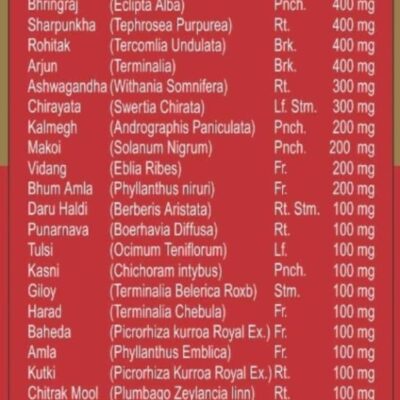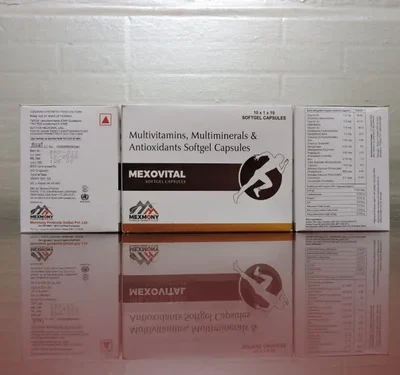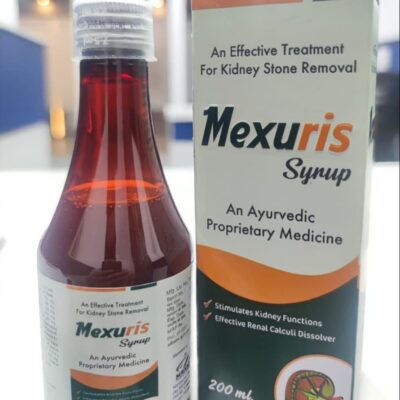
Natural Vitamin C Vitamin D3 Zinc Effervescent Tablet
Natural Vitamin C, Vitamin D3, and Zinc Effervescent Tablets are a convenient and effective way to supplement your daily intake of these essential nutrients
Description
A supplement combining natural Vitamin C, Vitamin D3, and Zinc is commonly used to support immune function, enhance overall health, and prevent deficiencies. Each of these nutrients plays a crucial role in different physiological functions, making this combination beneficial for immune support, bone health, skin integrity, and overall well-being. Below is a detailed breakdown of these components and their benefits.
1. Overview of Ingredients
Natural Vitamin C (Ascorbic Acid):
Vitamin C is a water-soluble antioxidant that plays a vital role in immune function, collagen synthesis, and the repair of tissues. Natural sources of Vitamin C include fruits like oranges, lemons, acerola cherries, and amla (Indian gooseberry).
Action: It neutralizes free radicals, supports immune cells, aids in collagen formation, and enhances iron absorption from plant-based foods.
Vitamin D3 (Cholecalciferol):
Vitamin D3 is a fat-soluble vitamin produced by the skin in response to sunlight or obtained from certain foods. It is essential for calcium absorption, bone health, and immune function. Natural sources include fatty fish, egg yolks, and fortified foods.
Action: Enhances calcium and phosphorus absorption from the gut, maintaining bone strength. It also plays a critical role in modulating immune responses and reducing inflammation.
Zinc:
Zinc is an essential trace mineral that supports immune function, DNA synthesis, wound healing, and cell division. Natural sources include shellfish, meat, seeds, and legumes.
Action: Zinc plays a crucial role in maintaining the integrity of the immune system, supports skin health, accelerates wound healing, and acts as an antioxidant.
2. Health Benefits
A. Immune System Support
Natural Vitamin C boosts the activity of immune cells like phagocytes and lymphocytes, helping the body fight off infections more efficiently. It enhances the production of interferons, which are proteins that inhibit viral replication.
Vitamin D3 modulates both innate and adaptive immune responses, reducing the risk of infections. It helps produce antimicrobial peptides like cathelicidin, which directly destroy pathogens.
Zinc maintains the integrity of the skin and mucosal membranes, acting as the first line of defense against pathogens. It also helps in the development and activation of T-lymphocytes (a type of white blood cell crucial for immune function).
B. Antioxidant Protection
Natural Vitamin C is a powerful antioxidant that neutralizes free radicals, preventing oxidative damage to cells and tissues. This reduces the risk of chronic diseases and supports healthy aging.
Zinc also acts as an antioxidant by protecting cells from oxidative stress, particularly in the skin and immune cells.
C. Bone Health
Vitamin D3 enhances calcium and phosphorus absorption from the intestines, promoting bone mineralization and preventing conditions like rickets in children and osteoporosis in adults. Adequate Vitamin D levels ensure the maintenance of bone density and strength.
Zinc contributes to bone health by regulating bone turnover, stimulating osteoblasts (cells that build bone), and maintaining the structural integrity of bone tissues.
D. Collagen Synthesis and Skin Health
Natural Vitamin C is vital for collagen synthesis, which is necessary for maintaining healthy skin, cartilage, tendons, ligaments, and blood vessels. It helps in the repair of damaged tissues and promotes wound healing.
Zinc supports skin health by regulating the production of sebum (oil), reducing inflammation in conditions like acne, and accelerating the healing process of skin wounds.
E. Enhanced Absorption of Nutrients
Natural Vitamin C improves the absorption of non-heme iron (plant-based iron), reducing the risk of anemia in individuals consuming plant-based diets.
Vitamin D3 enhances calcium absorption, ensuring that calcium levels in the blood remain within the optimal range for bone health and other physiological functions.
F. Anti-inflammatory Properties
Vitamin D3 is known to suppress chronic inflammation, reducing the risk of autoimmune disorders. It also helps prevent excessive inflammation during infections.
Zinc has anti-inflammatory effects, helping to lower the risk of chronic inflammatory diseases like rheumatoid arthritis.
3. Mechanism of Action
Vitamin C: Acts as an antioxidant and cofactor for various enzymatic reactions, including those involved in the synthesis of collagen, carnitine, and certain neurotransmitters. It also supports the immune system by enhancing the function of phagocytes, which engulf harmful bacteria and viruses.
Vitamin D3: Modulates calcium homeostasis by increasing the absorption of calcium and phosphorus from the gut. It binds to vitamin D receptors present in various tissues, including the immune system, bones, and skin, influencing gene expression and immune responses.
Zinc: Works as a cofactor for over 300 enzymes involved in various physiological processes, including immune function, DNA synthesis, protein production, and cell division. It is crucial for immune cell development and wound healing.
4. Recommended Dosage and Usage
Vitamin C:
Daily recommended intake: 65-90 mg for adults, but therapeutic doses for immune support may range from 500-1000 mg.
Natural sources like amla, acerola, and citrus fruits can be included for additional Vitamin C.
Vitamin D3:
Daily recommended intake: 600-800 IU for adults, though therapeutic doses can go up to 2000 IU or more, depending on the individual’s needs.
Zinc:
Daily recommended intake: 8 mg for women and 11 mg for men, though therapeutic doses for immune support may range from 15-30 mg per day.
Administration: Typically, these supplements are taken once or twice daily with meals, as Vitamin D3 is fat-soluble and should be taken with a source of fat for optimal absorption. Vitamin C and zinc can be taken with water or a light meal to prevent stomach irritation.
5. Natural Sources of These Nutrients
Vitamin C: Found in citrus fruits (oranges, lemons, limes), acerola cherry, amla, strawberries, bell peppers, broccoli, and kiwis.
Vitamin D3: Found naturally in fatty fish (salmon, mackerel, sardines), egg yolks, and cod liver oil. It is also synthesized by the body when the skin is exposed to sunlight.
Zinc: Found in oysters, red meat, poultry, beans, lentils, chickpeas, pumpkin seeds, and nuts.
6. Potential Side Effects and Contraindications
Vitamin C: Generally well-tolerated, but very high doses (over 2000 mg/day) may cause gastrointestinal disturbances such as diarrhea, nausea, and stomach cramps.
Vitamin D3: Excessive intake (above 4000 IU/day) can cause toxicity, leading to hypercalcemia (elevated calcium levels), which may result in kidney stones, nausea, and heart problems.
Zinc: Excessive zinc intake (over 40 mg/day) can lead to nausea, vomiting, diarrhea, and copper deficiency, as zinc interferes with copper absorption.
Contraindications:
Individuals with a history of kidney stones or hypercalcemia should avoid high doses of Vitamin D3.
Zinc supplementation should be carefully monitored in individuals with copper deficiency, as long-term high-dose zinc can lead to imbalances.
7. Who Can Benefit from This Combination
Individuals with weakened immune systems: People prone to frequent infections or who have compromised immunity (e.g., due to chronic illness, stress, or aging) can benefit from the immune-boosting properties of this combination.
Elderly individuals: Aging reduces the skin’s ability to synthesize Vitamin D, increases the risk of Vitamin D deficiency, and weakens the immune system. This combination supports both bone health and immunity.
People with digestive issues or malabsorption: Those with gastrointestinal conditions that impair nutrient absorption (e.g., celiac disease, Crohn’s disease) may benefit from these supplements to ensure adequate levels of key nutrients.
Vegetarians and vegans: Since natural sources of Vitamin D3 and zinc are primarily animal-based, individuals following plant-based diets may need to supplement with these nutrients.
8. Packaging and Storage
Forms: These supplements are often available as tablets, capsules, gummies, or syrups. They may be combined in a single supplement or taken individually.
Storage: Store in a cool, dry place away from direct sunlight. Keep out of reach of children.
Conclusion
The combination of natural Vitamin C, Vitamin D3, and Zinc is a potent immune-boosting supplement that also supports bone health, collagen synthesis, and skin integrity. This blend is particularly beneficial during cold and flu seasons, in times of stress, or for individuals with known deficiencies. The synergy between these nutrients ensures optimal immune function, faster recovery from infections, and enhanced overall health.








-
(0 customer reviews)Reviews
There are no reviews yet.